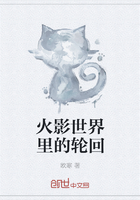At least they are wise enough to stand up for their country, that is, their hive, and work for it, and die for it, if need be; and that makes them strong.
But how does that make them strong?
How, is a deep question, and one I can hardly answer yet. But that it has made them so there is no doubt. Look at the solitary bees--the governors as we call them, who live in pairs, in little holes in the banks. How few of them there are; and they never seem to increase in numbers. Then look at the hive bees, how, just because they are civilised,--that is, because they help each other, and feed each other, instead of being solitary and selfish,--they breed so fast, and get so much food, that if they were not killed for their honey, they would soon become a nuisance, and drive us out of the parish.
But then we give them their hives ready made.
True. But in old forest countries, where trees decay and grow hollow, the bees breed in them.
Yes. I remember the bee tree in the fir avenue.
Well then, in many forests in hot countries the bees swarm in hollow trees; and they, and the ants, and the white ants, have it all their own way, and are lords and masters, driving the very wild beasts before them, while the ants and white ants eat up all gardens, and plantations, and clothes, and furniture; till it is a serious question whether in some hot countries man will ever be able to settle, so strong have the ants grown, by ages of civilisation, and not competing against their brothers and sisters.
But may I not compete for prizes against the other boys?
Well, there is no harm in that; for you do not harm the others, even if you win. They will have learnt all the more, while trying for the prize; and so will you, even if you don't get it. But I tell you fairly, trying for prizes is only fit for a child; and when you become a man, you must put away childish things-- competition among the rest.
But surely I may try to be better and wiser and more learned than everybody else?
My dearest child, why try for that? Try to be as good, and wise, and learned as you can, and if you find any man, or ten thousand men, superior to you, thank God for it. Do you think that there can be too much wisdom in the world?
Of course not: but I should like to be the wisest man in it.
Then you would only have the heaviest burden of all men on your shoulders.
Why?
Because you would be responsible for more foolish people than any one else. Remember what wise old Moses said, when some one came and told him that certain men in the camp were prophesying--"Would God all the Lord's people did prophesy!" Yes; it would have saved Moses many a heartache, and many a sleepless night, if all the Jews had been wise as he was, and wiser still. So do not you compete with good and wise men, but simply copy them: and whatever you do, do not compete with the wolves, and the apes, and the swine of this world; for that is a game at which you are sure to be beaten.
Why?
Because Lady Why, if she loves you (as I trust she does), will take care that you are beaten, lest you should fancy it was really profitable to live like a cunning sort of animal, and not like a true man. And how she will do that I can tell you. She will take care that you always come across a worse man than you are trying to be,--a more apish man, who can tumble and play monkey-tricks for people's amusement better than you can; or a more swinish man, who can get at more of the pig's-wash than you can; or a more wolfish man, who will eat you up if you do not get out of his way; and so she will disappoint and disgust you, my child, with that greedy, selfish, vain animal life, till you turn round and see your mistake, and try to live the true human life, which also is divine;--to be just and honourable, gentle and forgiving, generous and useful--in one word, to fear God, and keep His commandments: and as you live that life, you will find that, by the eternal laws of Lady Why, all other things will be added to you; that people will be glad to know you, glad to help you, glad to employ you, because they see that you will be of use to them, and will do them no harm. And if you meet (as you will meet) with people better and wiser than yourself, then so much the better for you; for they will love you, and be glad to teach you when they see that you are living the unselfish and harmless life; and that you come to them, not as foolish Critias came to Socrates, to learn political cunning, and become a selfish and ambitious tyrant, but as wise Plato came, that he might learn the laws of Lady Why, and love them for her sake, and teach them to all mankind. And so you, like the plants and animals, will get your deserts exactly, without competing and struggling for existence as they do.
And all this has come out of looking at the hay-field and the wild moor.
Why not? There is an animal in you, and there is a man in you.
If the animal gets the upper hand, all your character will fall back into wild useless moor; if the man gets the upper hand, all your character will be cultivated into rich and fertile field.
Choose.
Now come down home. The haymakers are resting under the hedge.
The horses are dawdling home to the farm. The sun is getting low, and the shadows long. Come home, and go to bed while the house is fragrant with the smell of hay, and dream that you are still playing among the haycocks. When you grow old, you will have other and sadder dreams.














